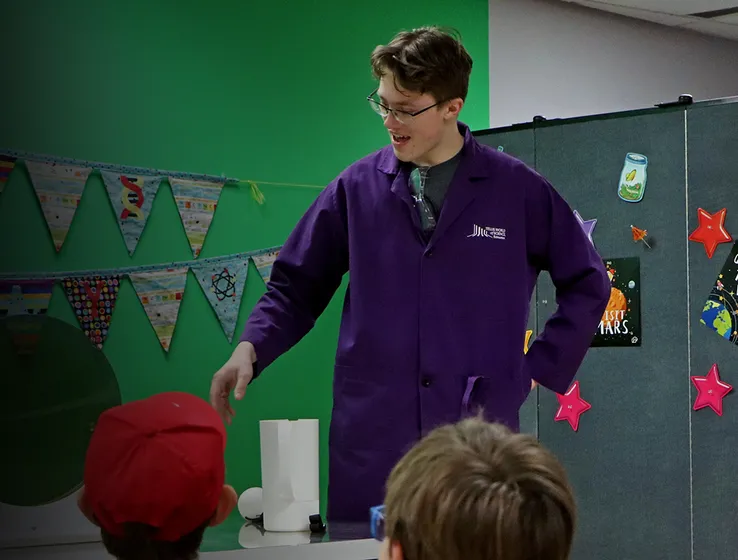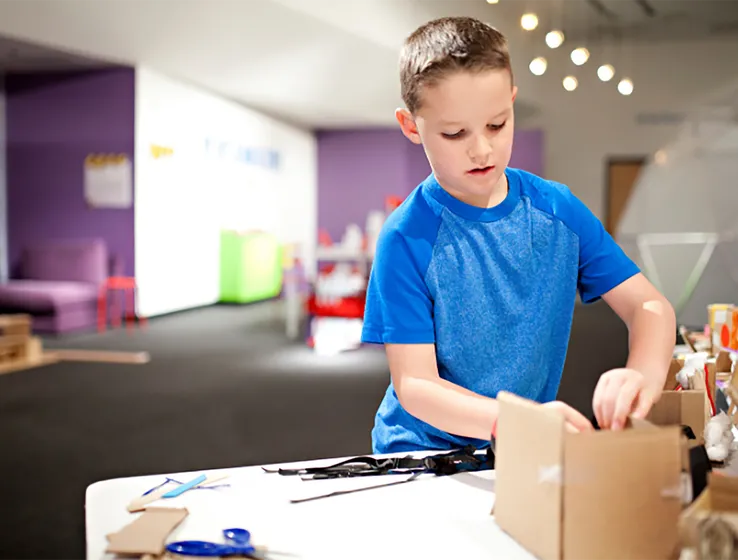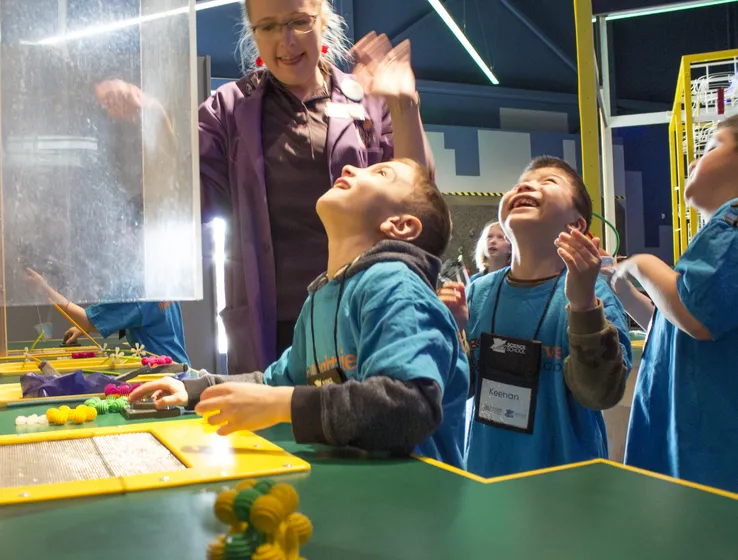-
Your health story starts with your genes, but they are not the whole story of you… Health Zone takes you through some of the different factors that influence your health. The gallery is divided into five zones with hands-on exhibits that let you explore:
- Biology – find out how genes and microbes influence your health.
See how immune cells react when germs get inside your body. Find out about some of the healthy microbes that call your body home. - Choices – the small choices you make every day add up in a big way over time.
Try some different techniques to cope with stress. Test your flexibility, balance, and leg power as you find out how physical activity supports your health. - Environment – where you live, work, and play influences your health.
Find out how infections spread, try to control an epidemic, and learn more about COVID-19 globally and how researchers and healthcare workers in Edmonton are involved in stopping the spread. - Healthcare – healthcare supports you when you need it.
See your skin in a different way under a microscope. Look at what diagnostic imaging tools reveal. - TELUS L.A.B. (Learning About Biology) – put on a lab coat and try some lab techniques.
Look at your own cheek cells under a microscope, extract DNA from a strawberry, or figure out the blood type of a 'patient', and other hands-on programs.
- Biology – find out how genes and microbes influence your health.
-
Health Zone takes your students through some of the different factors that influence their health. The gallery is divided into four zones with hands-on exhibits plus a laboratory for your students to explore:
- Biology – find out how genes and microbes influence your health.
See how immune cells react when germs get inside your body. Find out about some of the healthy microbes that call your body home. - Choices – the small choices you make every day add up in a big way over time.
Try some different techniques to cope with stress. Test your flexibility, balance, and leg power as you find out how physical activity supports your health. - Environment – where you live, work, and play influences your health.
Find out how infections spread, try to control an epidemic, and learn more about COVID-19 globally and how researchers and healthcare workers in Edmonton are involved in stopping the spread. - Healthcare – healthcare supports you when you need it.
See your skin in a different way under a microscope. Look at what diagnostic imaging tools reveal. - TELUS L.A.B. (Learning About Biology) – put on a lab coat and try some lab techniques.
Look at your own cheek cells under a microscope, extract DNA from a strawberry, or figure out the blood type of a 'patient', and other hands-on programs. See the Educator FAQ below to learn how your students can participate in the TELUS L.A.B.
Best Curriculum Fit
K-3
- Scientific Methods: Investigation of the physical world is enhanced through the use of scientific methods that attempt to remove human biases and increase objectivity.
- Living Systems: Understandings of the living world, Earth, and space are deepened by investigating natural systems and their interactions.
- Matter: Understandings of the physical world are deepened by investigating matter and energy.
Grade 8 Science: Unit B: Cells and Systems
- Biology – find out how genes and microbes influence your health.
Where: Health Zone in the Allard Family Gallery & TELUS L.A.B.
Age: All Ages
Entry: Included with public Science Centre Admission / School rates apply
Where: Health Zone in the Allard Family Gallery & TELUS L.A.B.
Age: All Ages
Entry: Included with public Science Centre Admission / School rates apply






Educator FAQs
Frequently asked questions by Educators
1. Can our students visit the TELUS L.A.B.?
Students grade 3 and up can visit the TELUS L.A.B. during our public program hours in small groups with a chaperone.
2. What about younger students?
Students grade 2 and under are encouraged to return on a future trip with family or friends to participate in the TELUS L.A.B. The Health Zone exhibition is open to all ages to explore!
3. Can our whole class come in at once?
During our program hours, we limit school groups to two tables to allow for the general public to participate at the same time. If you want to bring in your whole class, please look into the Health Zone – TELUS L.A.B. Educational Program for grades 7 to 9.
4. What should chaperones expect coming to the TELUS L.A.B.?
Our hands-on biology experiments take around 20 minutes and are self-directed. Chaperones are required to put on safety equipment and to assist their group in working through the experiment. Science Presenters are in the TELUS L.A.B. to answer questions and offer support, but they work with several groups at once. The chaperones are expected to take charge. Students and chaperones are required to clean up after they complete the experiment.





